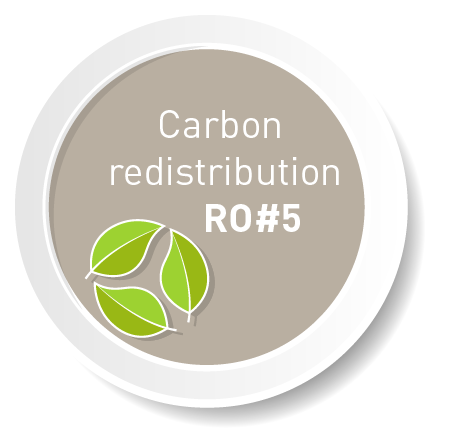
CAMBIOSCOP context and objectives
Bioeconomy and carbon circularity are European and French priorities in addressing innovation and competitiveness in the transition towards low fossil carbon use. Yet, the use of biogenic carbon for products and services where fossil carbon is used today poses key challenges. There is a scientific high agreement on a maximal available global biomass potential of 100 EJ y; in proportion, the 2016 global demand for energy alone was 550 EJ.
In addition, by inducing additional demands for biomass resources, there is a potential for increasing the pressure on constrained arable land and freshwater resources, among others.
On the other hand, the urgency to stabilize the global climate calls for solutions to postpone as far as possible the release of climate forcers to the atmosphere, and even to induce negative emissions, for which circular and bioeconomy are key.
CAMBIOSCOP proposes to address these issues by developing a foundation for establishing geolocalized, time-dependent and sustainable strategies for the development of bio-economy in France, looking at systems in integration rather than optimizing each in isolation as typically done. The lack of such integrated tools is acknowledged in the French bioeconomy strategy communication. The vision is to support decision makers in their investment choices today, so these are consistent with a sustainable and competitive bioeconomy tomorrow. In this endeavour, the major objective of this proposal is to propose a variety of tailored and quantified cost- and environmentally-efficient strategies towards the long-term development of France’s bioeconomy. CAMBIOSCOP has an important focus on biomass residues from primary, secondary as well as tertiary sectors of economic activity, these being expected to play a major role in supplying the feedstock needed for sustainable bioeconomy pathways, and being seen as an underexploited feedstock allowing to enlarge the biomass base. The residual biomass streams likely to be found in high density (per unit of area) in France are targeted, namely: agricultural (crop, manure), forestry (logging residues), grass (garden waste, unused meadows) and algae residues as well as food waste (municipal and selected industrial streams, e.g. wineries).
Six key research objectives (RO)
Potential impact of research
This project will fill a clear gap, as no such holistic bioeconomy platform being both consequential, dynamic, geo-localized and integrated with economic modelling currently exists. Through these insights over the whole supply chains and sectors of the economy, the major impact of the project is to uncover the limits of bioeconomy and guide research and investments towards the most promising technologies, supply-chains and business models for France. The vision is to capture unforeseen consequences before investments are made.
Further, this project will lead to clear propositions for postponing the releases of climate forcers to the atmosphere, which has been pointed out countless times as an uttermost urgency in order to stabilize the global climate. Research-wise, several modelling platforms will benefit from the methodological developments performed in this project (e.g. JRC DataM, life cycle inventories platforms), starting by the French MEANS platform that will benefit from several additions with regards to biomass conversion pathways and inclusion of soil carbon dynamics.
The project is expected to generate 10 original research articles (5 of the PI, 3 of the PhD student and 2 of the postdocs) and place France / TBI (ex. LISBP) at the forefront of integrated research approaches for circular- & bioeconomy.





